
Self
All that you will see has really happened . Napoli Eden is an inspirational cinematic odyssey that highlights environmental protection through the theme of transforming recycled aluminum into works of art. Napoli Eden conveys a vision of redemption, social inclusion and the ethical and cultural rebirth for the city of Naples, Italy through the eyes of artist and filmmaker Annaluara di Luggo.
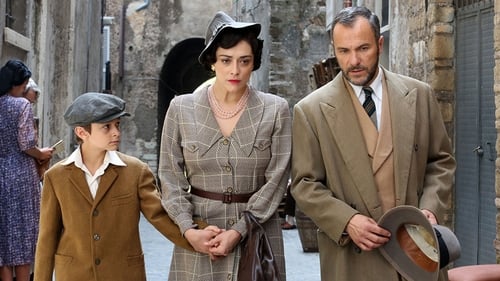
Mixing dramatizations and real-life interviews, this film tells the story of four Jewish children who endured the brutal anti-Semitism of fascist Italy.

Stationer
Ação, amor, violência e música se misturam nessa história de mafiosos em que um temido assassino se vê preso entre o dever e o coração.

Luciano Bove
Carlo and Melissa stay at a seaside villa but everything changes when Melissa discovers an ancient book of demons and the ghost of a 10 year old boy that's been dead for 40 years. She becomes possessed and it's up to Carlo, with the help of Anna De Luca, a professor on demonology, to stop the ritual that will bring about the rebirth of a 400 year old demon.

Vincenzo
Today, a special day for Luigi and Vincenzo, years of a love story in clandestine, for shame, fear, thinking do not have rights, no marriage, no family, neither walking hand in hand.... But this day, the same of the Napoli gay pride day, something changes.... Written by Giuseppe Bucci

General Cavallo
Quando políticos frustrados nomeiam uma figura histórica para ser o próximo presidente, um homônimo humilde e honesto se torna o líder da Itália.
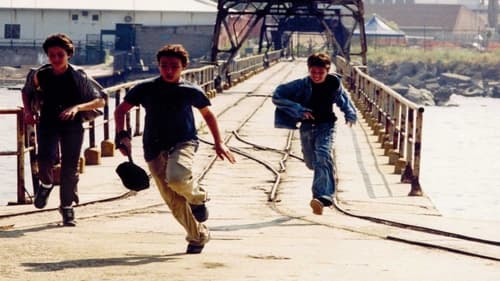
Rosario is 11 years old, he lives in the suburbs with his grandmother, a sick woman who spends time watching TV. He is the leader of a small group who spends his days between games rooms, small crimes and dangerous challenges.

Burly Captain
Um magnata da indústria farmacêutica, Anthony "Tony" Leighton (Bruce Greenwood), é casado com a bela e extremamente arrogante Amber (Madonna). Tony alugou uma embarcação para, junto com a mulher e alguns amigos, fazerem um cruzeiro da Grécia até a Itália. Porém nada faz Amber feliz, com ela implicando especialmente com Giuseppe Esposito (Adriano Giannini), um pescador que está trabalhando no navio. Um dia Amber descobre que seu marido e a maioria dos seus convidados pegaram um bote para fazer um passeio nas cavernas das ilhas. Ela fica irritada e ordena que Peppe desça outro bote, apesar dele avisá-la que o momento não é uma boa hora, por causa das correntes. O temor de Peppe logo se concretiza, pois o motor do bote quebra. Para piorar ele e Amber brigam por um sinalizador e acabam dando um tiro, que fura o bote.

narratore
A woman is longing to make love to her husband once again, but he is always working or tired. At her wit's end she consults a medium, who has a couple of solutions for her problem. The first two solutions fail, but maybe the sweets will help?
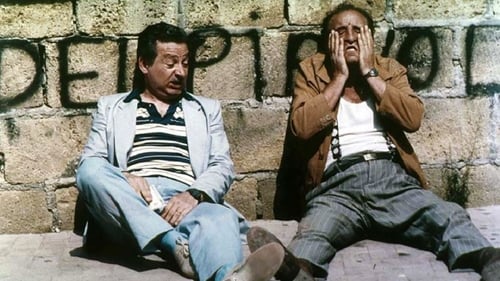
funzionario d'una ditta
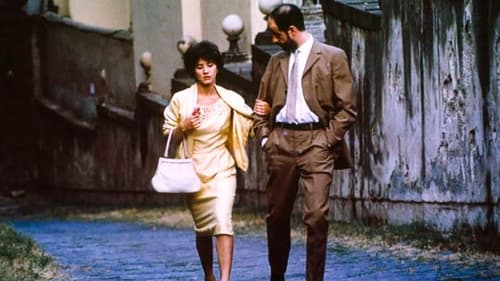
Stefanini
Naples, 1959. Pure Mathematics professor Renato Caccioppoli, Bakunin's grandson, is a tortured soul. Recently discharged from the psychiatric hospital, left by his wife, and increasingly disillusioned with academia and the Communist Party, he lives his last days with painful detachment.

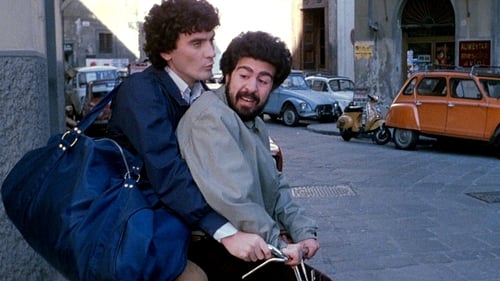
Patrizio
Gaetano, giovane napoletano, decide di lasciare casa, lavoro ed amici, per cercare altri momenti di vita e conoscere altre persone. Arriva a Firenze, a casa della zia. In un ambulatorio, dove capita per caso, conosce Marta e se ne innammora. Dopo una serie di divertenti situazioni (un vecchio amico dalla parlantina inarrestabile arriva da Napoli; la matura zia ed il suo attempato amante; un giovane prete Americano che vuole coinvolgerlo per forza nelle sue visite evangeliche; l'incontro con Riccardino, un giovane frustrato da una madre oppressiva; il padre che aspetta il miracolo della ricrescita di una mano amputata; etc.) Gaetano decide di restare a Firenze e di fare da padre al figlio che Marta aspetta, anche se la ragazza non vuole rivelare con esattezza il nome del padre.

Cahiers du cinéma critic Serge Daney asks whether The Kingdom of Naples is "leftist fiction, kitschy melodrama, photo-roman, a decadent chronicle of a city, opera in a minor key, or simply the first realistic narrative film by Schroeter?" It is all of these and more: an epic chronicle of proletarian family life in Naples from 1943 to 1972 that brilliantly captures the wretched poverty, overwrought passions, and political, religious and economic upheavals of Sicily across two generations. Schroeter assimilates neorealist aesthetics and class sympathies with the tempestuous excesses of popular melodrama, borrowing freely from Rossellini, Pasolini, Visconti, Brecht, and Rossini. (Facets)











